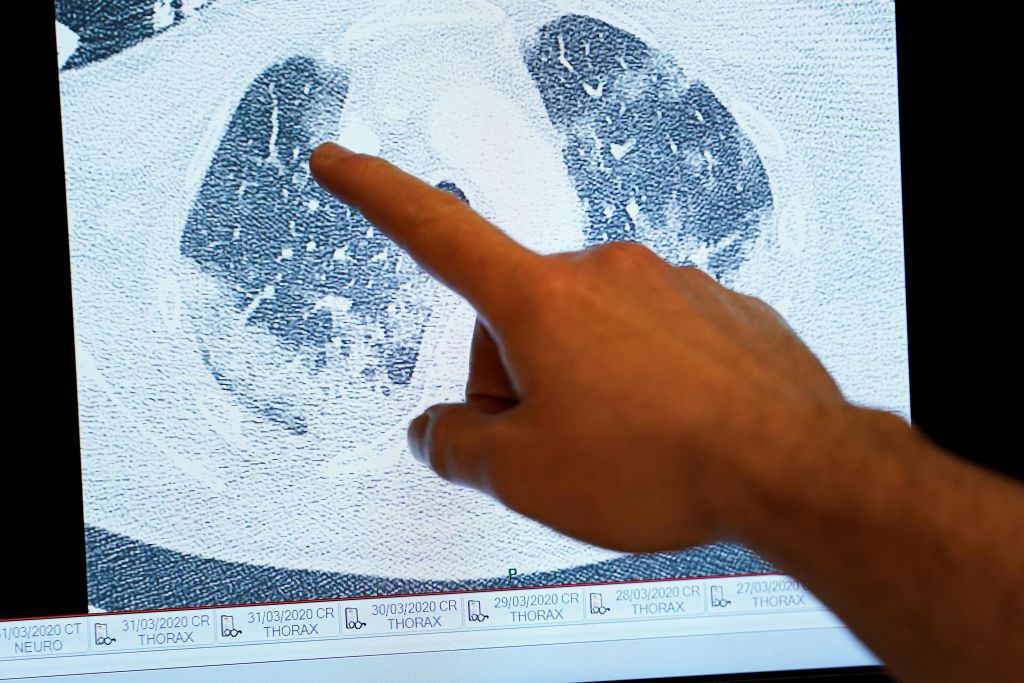Scientists believe a pharmaceutical version of a naturally occurring peptide could protect lungs from coronavirus


A free daily email with the biggest news stories of the day – and the best features from TheWeek.com
You are now subscribed
Your newsletter sign-up was successful
While the pharmaceutical industry has mainly focused on developing antiviral drugs that can fight off coronavirus infections and vaccines, one biotech firm is working on a treatment that would protect a patient's lungs from COVID-19's worst effects, Stat News reports.
Scientists now have a clear sense that the virus enters a person's system through ACE2, an enzyme commonly found on the surface of lung cells. One of ACE2's jobs is to prevent inflammation, but when it's interrupted (as it is in coronavirus patients), it can no longer keep a peptide that constricts blood vessels, known as angiotensin II, in check. Normally, ACE2 would fend off angiotensin II by converting it to angiotensin-(1-7), another peptide that relaxes the vessels and reduces inflammation, protecting people from blood clots and oxidation, which some COVID-19 patients have suffered from.
Two scientists, Concepción Peiró, a professor of pharmacology at the Autonomous University of Madrid, and Salvador Moncada, a professor of clinical pharmacology at the University of Manchester, hypothesized that boosting angiotensin-(1-7) could protect patients' lungs, while the immune system took care of the virus on its own. Upon learning this, Rick Franklin, the CEO of Constant Therapeutics, informed the Peiró and Moncada of his company's pharmaceutical version of the naturally-occurring angiotensin-(1-7), and Columbia University is now launching a trial for the drug.
The Week
Escape your echo chamber. Get the facts behind the news, plus analysis from multiple perspectives.

Sign up for The Week's Free Newsletters
From our morning news briefing to a weekly Good News Newsletter, get the best of The Week delivered directly to your inbox.
From our morning news briefing to a weekly Good News Newsletter, get the best of The Week delivered directly to your inbox.
As usual, the testing period will prove tricky, but there's a growing consensus that combating the unopposed angiotensin II could be a "good technique" in trying to protect patients' lungs from the virus, even if it doesn't stave off the infection itself. Read more at Stat News.
A free daily email with the biggest news stories of the day – and the best features from TheWeek.com
Tim is a staff writer at The Week and has contributed to Bedford and Bowery and The New York Transatlantic. He is a graduate of Occidental College and NYU's journalism school. Tim enjoys writing about baseball, Europe, and extinct megafauna. He lives in New York City.
